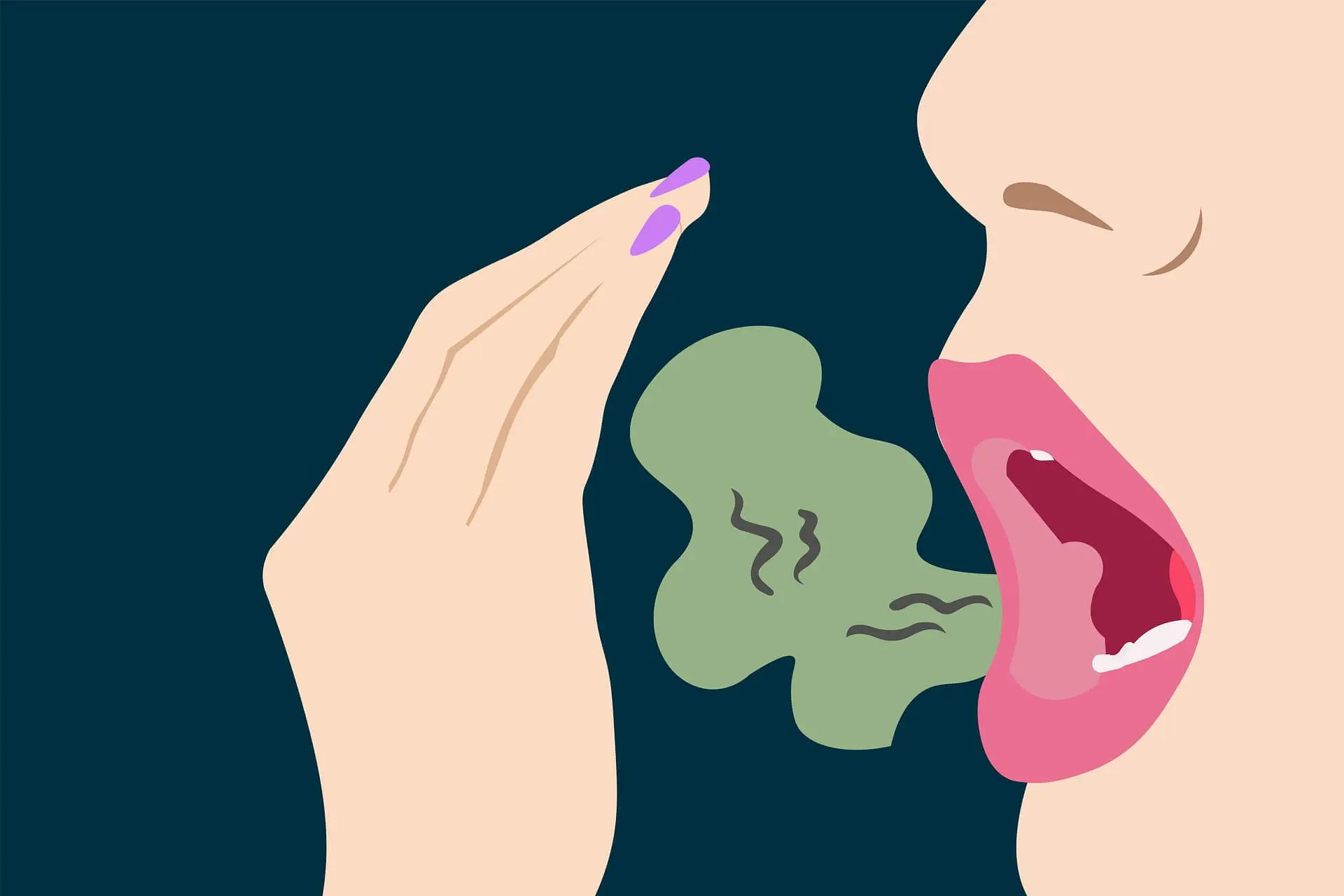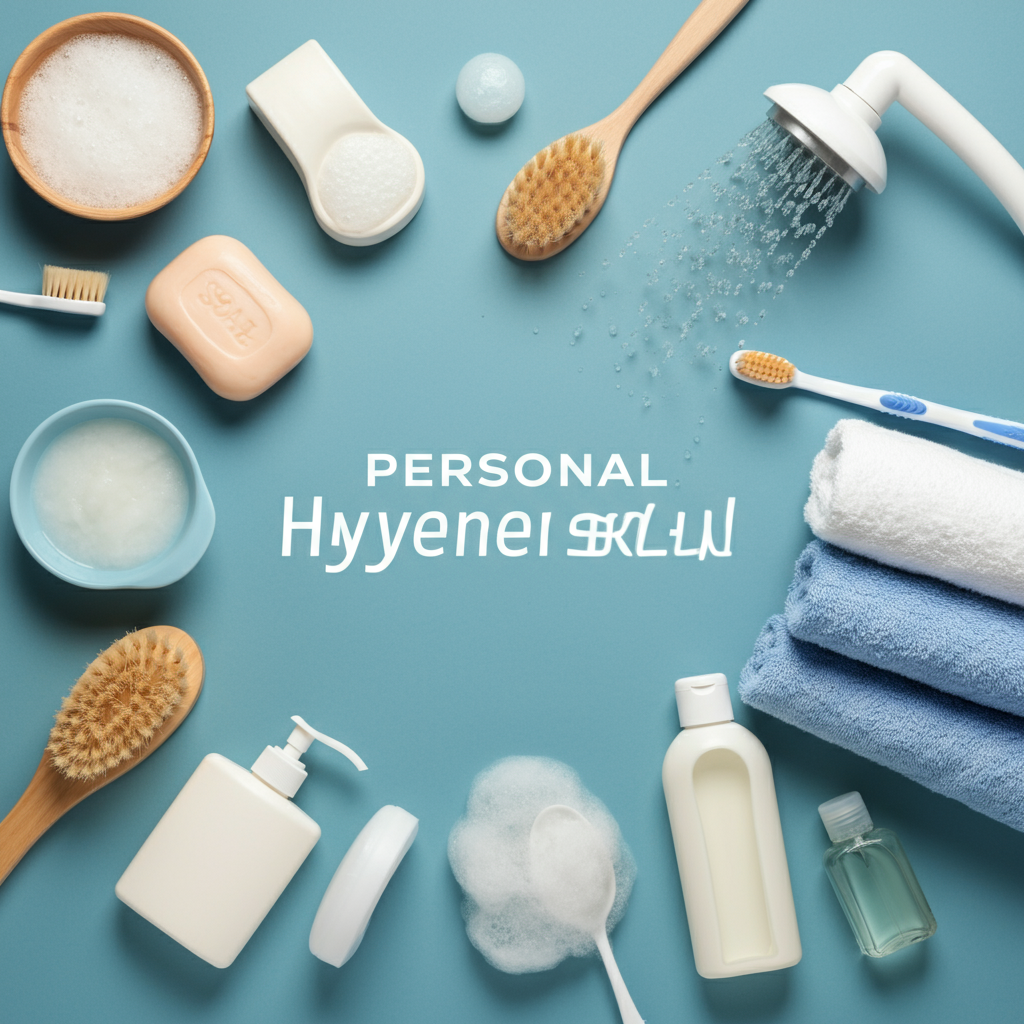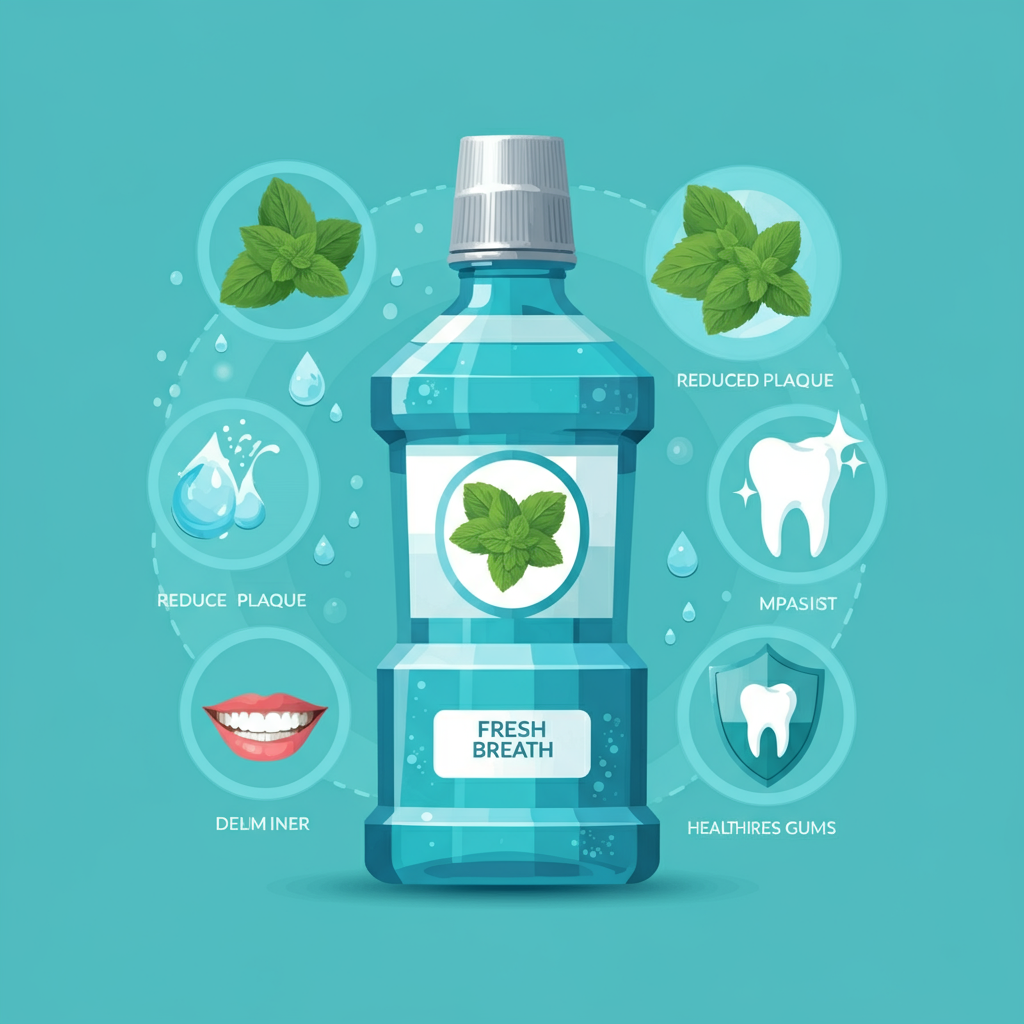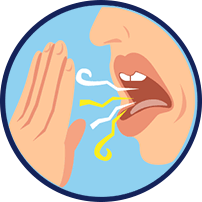Bad breath, also known as halitosis, is more than just an uncomfortable condition—it can affect your self-confidence, social interactions, and even your professional life. Whether it’s a temporary issue after that garlic-loaded lunch or a persistent problem affecting your daily life, bad breath is a concern we’ve all faced at some point.
The good news? Understanding the causes and solutions makes treating it much easier. This guide will take you through everything you need to know about combating bad breath, from identifying its sources to learning how to prevent it for good.

Understanding Bad Breath
What is bad breath?
Bad breath is an unpleasant smell coming from the mouth, often caused by bacteria, food particles, or medical conditions. Many people assume it’s just a sign of poor oral hygiene, but there are plenty of other factors that can play a role.
Common misconceptions:
- Brushing once a day is enough to prevent it.
- Chewing gum is a foolproof fix (spoiler alert: it’s not).
- It only happens if you eat “smelly” foods.
What causes bad breath?
Bad breath happens when harmful bacteria thrive in the mouth, food particles decay, or in some cases, due to health issues in other parts of the body. To tackle it effectively, we need to recognize the causes first.
Common Causes of Bad Breath

1. Poor Oral Hygiene
- Plaque and food particles build up between teeth and on gums.
- Bacteria grow on the tongue and in hard-to-reach areas, producing sulfur compounds that cause an unpleasant smell.
- Forgetting to floss allows trapped particles to linger.
Key takeaway: Good oral hygiene is your first line of defense against bad breath.
2. Dry Mouth (Xerostomia)
- Saliva is essential for washing away bacteria and food particles.
- When your mouth is too dry, bacteria reproduce more easily.
What causes dry mouth?
- Side effects of medications.
- Breathing through your mouth rather than your nose.
- Dehydration due to insufficient water intake.
3. Dietary Factors
Beyond obvious foods like garlic or coffee, the quality of fats used in daily cooking can also influence digestion and, indirectly, breath freshness. Highly refined oils and heavily processed foods may be harder on digestion, sometimes contributing to lingering odors.
Many people therefore prefer traditional, minimally processed fats as part of a balanced diet. For example, traditionally prepared cow ghee is often chosen for its simplicity and ease of digestion when used in moderation.
4. Tobacco Use
Smoking or chewing tobacco doesn’t just cause bad odors directly. It also contributes to gum disease and reduced saliva flow, making matters worse.
5. Medical Conditions
Severe or chronic bad breath might indicate an underlying health problem, including:
- Gum disease, tooth infections, or tonsillitis.
- Systemic conditions like diabetes, which can cause a fruity or sweet odor.
- Sinus infections or gastrointestinal disorders.
6. Dehydration
Without enough water, your body cannot produce enough saliva to cleanse your mouth effectively. The stagnation can lead to a build-up of odor-producing bacteria.
Effective Treatments for Bad Breath
Temporary remedies might include mints or mouthwash, but the real solution lies in tackling the root cause.
Short-term fixes
- Mouthwashes can freshen breath, but they mainly mask odors instead of eliminating the source.
- Chewing gum (especially sugar-free options with xylitol) increases saliva production for a temporary boost.
Long-term solutions
- Implement Better Oral Hygiene
- Brush at least twice daily with fluoride toothpaste; don’t forget your tongue!
- Floss daily to remove trapped food particles.
- Stay Hydrated
- Drink plenty of water to maintain saliva production and keep your mouth fresh.
- Aim for at least eight 8-ounce glasses per day.
- Seek Professional Dental Care
- Regular check-ups help address underlying issues like gum disease or cavities.
- Professional cleanings eliminate hardened plaque (tartar) that brushing can’t remove.
Preventing Bad Breath
Prevention is key when it comes to halitosis. Here are the habits you should include in your daily routine to keep bad breath at bay.

Build a Daily Oral Care Routine
- Clean thoroughly with brushing, flossing, and tongue scraping.
- Replace your toothbrush every 3–4 months.
- Consider using an electric toothbrush for better results.
Watch What You Eat
- Limit foods known to cause bad breath (e.g., garlic, onions).
- Eat a balanced diet, and avoid prolonged low-carb regimens unless necessary for health reasons.
- Incorporate breath-friendly foods like fresh fruits, vegetables, and herbs (parsley is a great natural breath freshener).
Stay Hydrated
- Make water your go-to beverage. Limit sugary drinks, coffee, and alcohol.
Avoid Tobacco
- Besides health benefits like reduced cancer risk, quitting tobacco brings instant improvements to how your breath smells.
When to Seek Professional Help
Sometimes, self-care isn’t enough. Here’s how to know when it’s time to book a dental appointment.
Signs You Need to See a Dentist
- Persistent bad breath despite brushing and flossing.
- Bleeding gums, tooth pain, or other unusual oral symptoms.
What to Expect from a Professional Visit
- Diagnostic tests to determine the source of the bad breath (e.g., for gum disease or infections).
- Tailored treatment plans, whether it involves deep cleaning, cavity treatments, or specialized referrals for underlying medical conditions.
Take Control of Your Oral Health Today
Bad breath doesn’t have to hold you back. By understanding the causes, adopting effective treatments, and following preventative measures, you can enjoy fresh breath and newfound confidence.
If you’re ready to make your oral health a top priority, share this post with loved ones who might benefit from these tips. A little knowledge can go a long way in ensuring everyone feels (and smells) their best!







